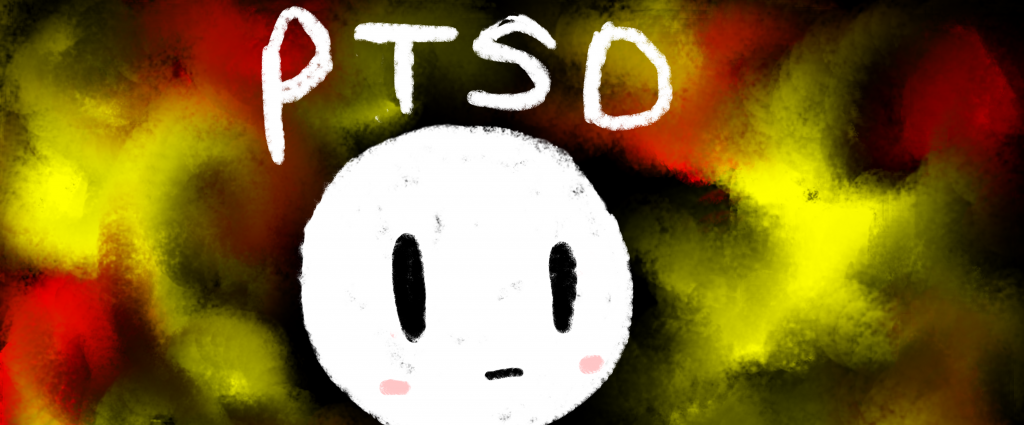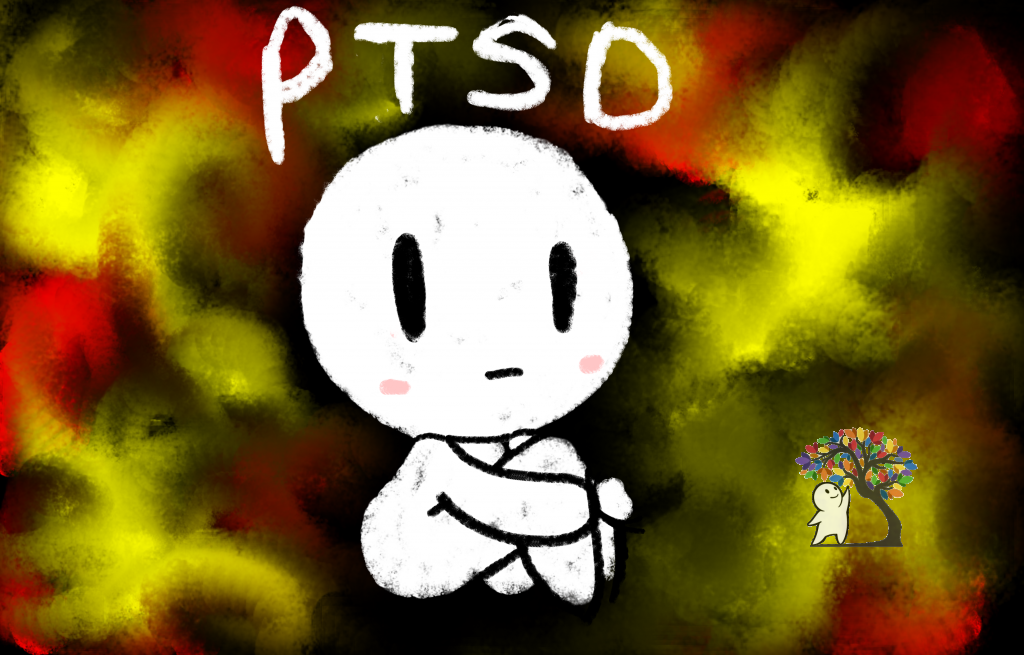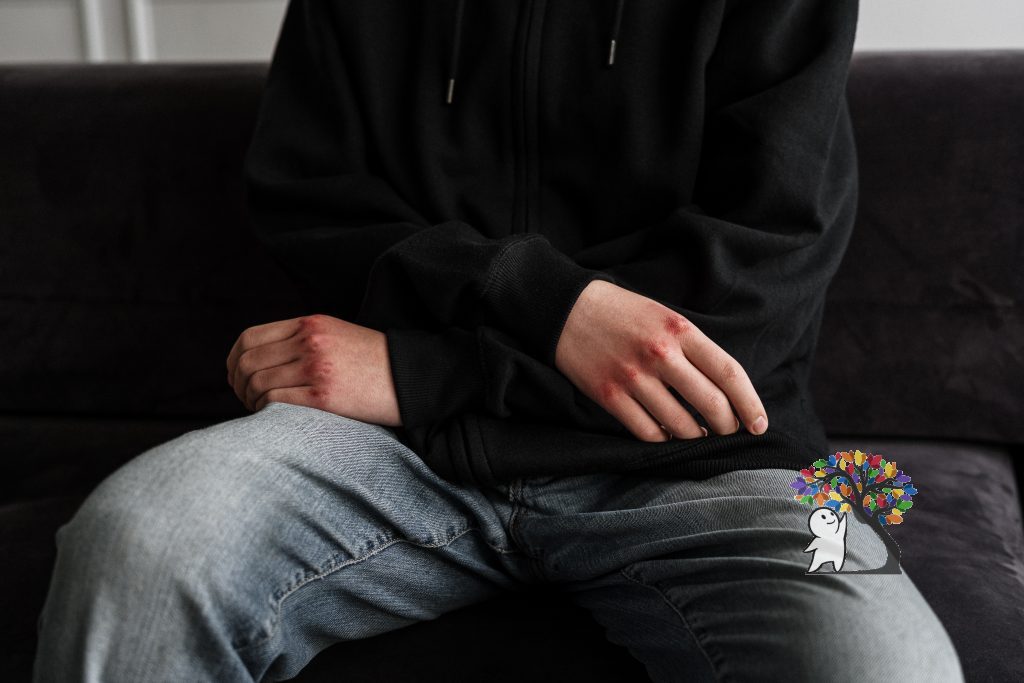8 Signs of Post Traumatic Stress Disorder (PTSD)

Hi there Psych2Goers, this is a disclaimer that this article is for informative purposes only. It is not intended to diagnose or offer any kind of mental health advice. If you’re struggling, please reach out to a healthcare provider or mental health professional.
We all at one point or another have been in an uncomfortable or otherwise bad situation. Usually, we overcome these scenarios and they become nothing more than a memory. However, sometimes these situations we’re in become pretty serious and leave lasting consequences that affect us in our daily life. Trying to overcome them isn’t easy and we find ourselves ruminating over the past. Post Traumatic Stress Disorder (PTSD) is pretty serious and can drastically impact our ability to function. To better understand what the condition is, in this article, we’ll be looking at eight signs of PTSD.

But First, What is PTSD?
Post Traumatic Stress Disorder is a condition that sometimes develops after exposure to a traumatic event. Traumatic events can range from anything from a horrible accident, sexual assault, or witnessing a disturbing event, and more. In some cases the event happens directly to the person, such as surviving a car crash. In other cases it can be from witnessing an event such as a horrible accident where someone dies. Even further, someone may experience a traumatic event by hearing bad news about someone their close to; like getting a phone call that your close friend suddenly passed away. These instances may be isolated or recurring in a short time. In some cases, events can take place over several years which leads to a potential subtype: Complex Post Traumatic Stress Disorder (C-PTSD).
When someone experiences a traumatic event, they may develop serious psychological problems later on: perhaps they relive the experience through intrusive thoughts or dreams. They may also develop other serious symptoms that inhibit a normal way of life. These signs typically develop one month after the incident and may include the following:

1. You Have Recurring Memories and Dreams About a Traumatic Event
In many ways, you find yourself experiencing the traumatic event repeatedly. You may experience intrusive thoughts where you get images and sensations from the event that you cannot block out. With these, it can be hard to focus and function normally. Veterans from war that have experienced intense and traumatic war scenes may have nightmares about battle years to decades after their military tenure is over. These thoughts and dreams may be vivid and overwhelming (ADAA 2010).

2. You Experience Flashbacks
A more serious version of intrusive memories are flashbacks. When you’re experiencing a flashback, it may feel like you’re reliving the experience again. These episodes can be intense and you can lose a sense of where you are. A person involved in a serious car accident may feel similar pain and sensations close to the event itself. Flashbacks are usually triggered by something. Triggers can be anything from scents, to conversations, to being in a similar location that the traumatic event occurred in. These episodes are highly distressing and overwhelming to experience (Tull 2020).

3. You Avoid Triggers
Reminders, otherwise known as triggers, can bring on discomfort. With PTSD, you may find yourself avoiding any sort of reminder that a traumatic event happened. Sexual assault survivors, for instance, may avoid conversations about the topic completely and change the subject if it comes up. Similarly, veterans may avoid loud and sudden noises. If an event took place in a specific location, you may find yourself avoiding anywhere that seems similar. This can be incredibly exhausting and hard to do, and can be extremely distressing if you unintentionally come into contact with a trigger (Mayo Clinic 2018).

4. You Feel Detached
PTSD can be isolating. It varies from person to person and can be difficult to understand from an outside perspective. You may find yourself feeling detached from the people around you and your situation. This can disrupt relationships and cause you to feel lost and hopeless. A person who suddenly lost their home for instance, may find it difficult to remain grounded. Sometimes your thoughts can be so overwhelming that it’s hard to focus on anything else (ADAA 2010).

5. You Are Overly Alert
If you’ve experienced a highly traumatic event, you may feel more on edge. People with PTSD can feel extra jumpy and cautious of people and situations. You may find that you’re easily startled by loud noises and sudden movements. You can be extra sensitive to stimuli that others cannot relate to. Depending on the event, you may feel a heightened level of defensiveness and compulsively, you can’t let your guard down (Torres 2020).

6. You Feel Guilty or Shameful
Sometimes people put the blame on themselves for the cause or effect of an event. In other cases, you may feel dirty or fundamentally changed from a situation – which is common in sexual assault survivors. These feelings are usually irrational and can be quite distressing. You may feel responsible for things that are/were completely out of your control and that interferes with your wellbeing (ADAA 2010).

7. You Struggle With Depressive Symptoms
Heightened depression and anxiety can come with PTSD. You may feel more sad and hopeless as a result of the event. Some people take on self-destructive coping mechanisms such as drugs or alcohol to deal with their discomfort. Similarly, you can lose all interest in activities and struggle to find the point in anything. In severe cases, you may develop suicidal thoughts, which should be treated as an emergency (Mayo Clinic 2018).

8. You Struggle With Your Memory
While PTSD can cause someone to experience intense memories and flashbacks regarding the traumatic event, that’s not always the case. Sometimes you may find yourself unable to remember certain details about the event, and/or hyperfixate on certain elements. This is potentially is a self-protective measure, especially in severe cases. In other scenarios – more so due to the depressive symptoms – you may find it difficult to remember and concentrate on more current events (MedlinePlus 2020).

PTSD is truly a troubling condition to deal with. It is complex and has many different causes and reactions. Fortunately, there is help and treatment available. People can go on to live comfortable and normal lives with the right support system. In many cases, the symptoms can be resolved with the help from professionals. If you’re struggling, please reach out to a qualified mental health professional and get your life back on track.
If you found this article helpful, leave a rating below. We have a whole category dedicated to PTSD for further readings. Do you have any input or want to add to the discussion? Leave a comment in the comment section! And as always, take care.
Like this article? Here’s another you may enjoy:
References:
- Anxiety and Depression Association of America. (2010). Symptoms of PTSD | Anxiety and Depression Association of America, ADAA. adaa.org/understanding-anxiety/posttraumatic-stress-disorder-ptsd/symptoms
- Mayo Clinic. (2018, July 6). Post-traumatic stress disorder (PTSD) – Symptoms and causes. www.mayoclinic.org/diseases-conditions/post-traumatic-stress-disorder/symptoms-causes/syc-20355967
- MedLinePlus. (2020, August 20). Post-Traumatic Stress Disorder. medlineplus.gov/posttraumaticstressdisorder.html
- Torres, F. (2020, August). What Is Posttraumatic Stress Disorder? American Psychiatric Association. www.psychiatry.org/patients-families/ptsd/what-is-ptsd
- Tull, M. (2020, June 7). How to Identify Triggers for PTSD Flashbacks and Minimize Attacks. Verywell Mind. www.verywellmind.com/coping-with-flashbacks-2797574


Responses